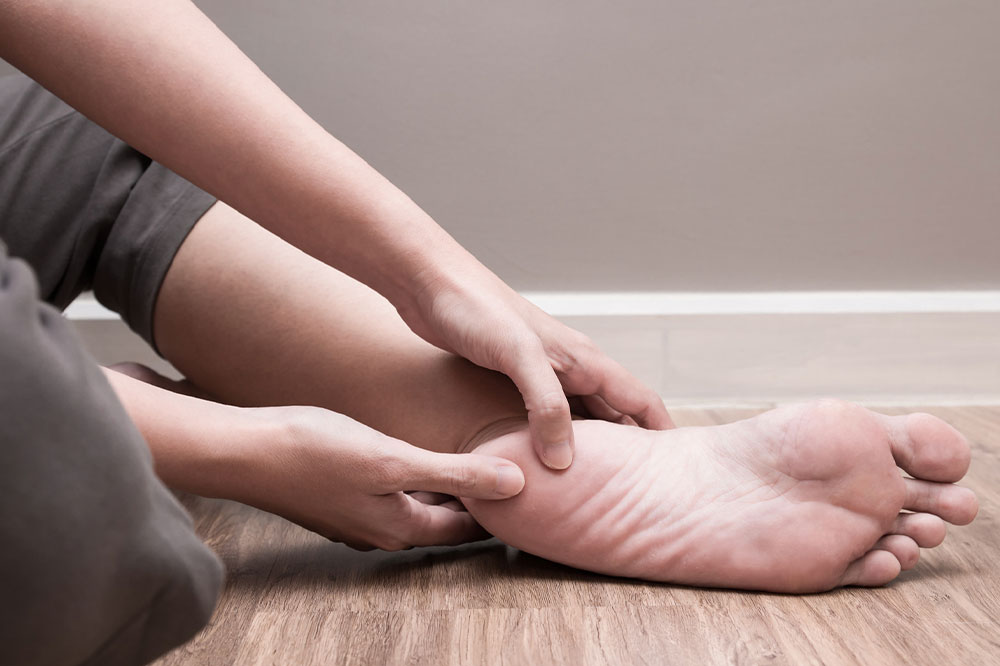Plantar Fasciitis Diagnosis and Treatment
Our body weight completely relies on our legs; hence, we need to take special care of our leg and heel muscles. Excess pressure on the legs causes several ailments to muscles, nerves, and the bones. We are talking about plantar fasciitis; it is a condition in which the thick band tissue of the heel that connects it to the toe inflames and causes excruciating pain and muscle injuries.

This kind of pain lasts for some time; however, improper care may aggravate as you age. Aging brings with it an additional weakness to different parts of the body; hence, it is always advisable to keep your body healthy with the help of exercise and a nutritious diet. Here are a few remedies you can put to use in case you suffer a stroke of plantar fasciitis.
Rest and recoup
Sitting or standing for long hours puts immense pressure on leg muscles, particularly the ankles and heels. Sitting for long hours makes the muscle immobile, increasing the pressure on the muscles and nerves. Similarly, standing for long hours also puts pressure on the heel and toe veins, leading to excruciating pain while you walk. Release this stress by doing mild leg stretching exercises.
Choose the right shoe
Plantar fasciitis largely depends upon the size and shape of your footwear. Wearing the wrong size of footwear will strain the heel ligament, damaging it in the longer run. Choose a comfortable shoe with the help of a shoe size board to help get the correct size. You can also use shoe inserts to add good arch support and a cushioned heel. Shoe inserts help in reducing stress on the heel ligament allowing you a comfortable walk.
Ice pack
Excess pressure on heels leads to inflammation of the heel muscle. In such cases, use an ice pack to suffice the pain and swelling. Usage of ice packs is doctor recommended and comes handy during heavy swelling. Furthermore, make sure you have contrast baths, i.e., shuffle between hot and cold water. Body muscles require both hot and cold water to maintain its temperature. After a hot bath, be sure to end your bath with a mug of cold water. This will help in avoiding heel pain.
Seek medical advice
It is a general human tendency to treat ailments depending upon its own whims and fancies. Plantar fasciitis pain relief requires professional help. Self-medication will not only aggravate your condition but also endanger your health. To alleviate heel pain, people have a habit of consuming painkillers without consulting the doctor. In cases of muscle injuries or pain, always make sure you consult the doctor before having any form of medication.
Stretching exercises
Muscle pain can be released with the help of mild stretching exercises or yoga. While doing stretching exercises ensure to stretch to a certain limit as muscles have their own stretching limitations, excess of which might injure the muscle. Regular exercise and yoga are highly advisable plantar fasciitis pain relief methods. Make use of a yoga mat and avoid doing these exercises on a bare floor as the coldness of the floor might strain the muscles. These exercises will help in maintaining the flexibility of leg and heel muscles.
High heels
Some people are habituated at wearing high heels throughout the day or even at home. High heels change the arch of the heel thereby stretching the heel muscle beyond its limit. A lot of cases of plantar fasciitis have been registered due to constant usage of high heels. If you cannot stay without wearing heels, make sure to gently massage your heels at regular intervals. This will help to keep heel pain at bay.
Choose herbal medicines
If medicines make you cringe then you can always choose herbal medicines. A spoonful of turmeric in a glass of warm milk and honey before going to bed is a good home remedy to avoid contracting plantar fasciitis. Turmeric comprises a component named Curcumin, which works for plantar fasciitis pain relief as well as keeps inflammation under control. Herbal medicines are great alternatives for plantar fasciitis pain relief.
Ginger tea
Ginger has numerous medicinal properties that help in keeping numerous ailments away. A spoonful of grated coconut in warm water is a good remedy for muscle injuries. If raw ginger is not your taste then you can always opt for ginger tea, which is readily available in the market. Ginger is a natural painkiller as well as helps in controlling inflammation caused due to plantar fasciitis.
Good health comes with a good routine as well as a good diet. Following the aforementioned remedies and suggestions will help in maintaining good health of leg muscles and provide long-term pain relief plantar fasciitis.











